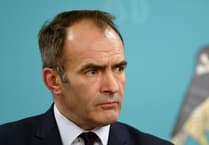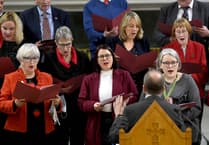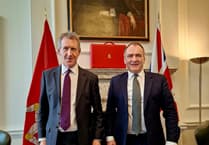One of the downsides of the island’s non-party political system is that new governments arrive in office with little in the way of actual policies.
At best the preceding general election will have created a rough agenda of issues of concern, but no mandate for how these should be tackled. Working out solutions can take time.
So it is a mistake to expect too much substance from the first policy document of an incoming administration, or indeed from its first Budget, when many of the big questions are still waiting for answers.
The Cannan regime faces a formidable list of such questions. They include: how to solve the housing crisis; how to fund health and social care services; how far, and how fast, to go in responding to climate change; how to secure the future of the island’s economy.
The challenge for government is to develop and apply the right national policies in these areas. The challenge for the public is to keep track of this process so we can hold the politicians to account.
The Manx way of doing democracy makes both tasks harder. Because no member is voted in or out on an all-island basis there is less incentive to deliver at that level. Here the constituency is bigger than the nation.
And the absence of opposition means there is no competitive focus on collective performance, no spotlight on whether the government overall is succeeding or failing.
In this low-pressure atmosphere it is too easy for difficult issues to get lost in an endless round of review and consultation, followed by fudge as the next election approaches.
The Isle of Man has yet to achieve the rigour and corporate accountability of proper national politics. If our system was a business it would be a monopoly, lacking the discipline of competition and offering the public no real choice.
Of course MHKs work hard for the island as whole. But they do so without the direction of a mandate from the nation and their careers, generally, do not depend upon the outcome.
**
Mr Micawber’s Budget outlook
As expected the government’s first Budget was essentially a holding operation, but it did reflect the priorities identified in its Island Plan.
Of these the campaign against climate change now has a pot of £42 million. Sceptics fear that public money will be splurged on any and every project that looks a bit green. It would help if someone could explain the governance controls around these funds.
Managing the Covid crisis has cost the island’s exchequer a staggering £300 million. Businesses and individuals have become used to a flow of state support. It will take an unusually resolute politician to keep the tap turned off as soaring inflation puts new pressure on companies and households.
This was not the ideal time for the Treasury minister to announce a forthcoming consultation on the funding of health and social care, but inexorably rising costs have to be addressed.
The political problem is that the exercise can only confirm an inconvenient truth. Through increased taxes or charges the public will have to pay more for these services, which have a budget of £289 million for the next financial year.
That message will backfire if people see government is making no serious attempt to rein in spending on lower priority items in its total annual expenditure of almost £1.2 billion.
So far ministers have shown little or no appetite for fiscal restraint, but they appear to be relying on a new process of departmental reporting and government self-scrutiny to highlight potential savings.
As we wait for turkeys to volunteer for festive duties, this administration will be running a convenient revenue deficit of at least £25 million a year for the rest of its term of office. The overall deficit is nearer to £100 million with capital expenditure taken into account, and more reserves will be depleted if the health and social care issue is not resolved.
The shortfall is set to continue until such time as tax income recovers to pre-Covid levels, or another painless way is found to do without it.
Government talks optimistically about investing in the future. But its approach to public finance is neither sustainable nor fair to the generations who will inhabit that future.
Like Mr Micawber ministers are hoping that something will turn up.




-(1).jpeg?width=209&height=140&crop=209:145,smart&quality=75)
Comments
This article has no comments yet. Be the first to leave a comment.